No — Medical Coding Isn't a Dying Career
Many medical coders find themselves wondering, “Am I working in a dying career?” The short answer to that question is no. But I’ll answer that question the long way for the rest of this blog post.

We’ve all heard this before. At a certain point, technology makes a job so easy that it’s original responsibilities become easier. When that happens, the unfortunate reality is the career losing more responsibility over time. The technology continues to advance to the point where the organization no longer needs a full-time employee
As a result, technology advancements take jobs.
There are thousands of articles on how artificial intelligence(AI) and robots will soon replace millions of jobs.
I imagine you’ve seen some of these headlines too.
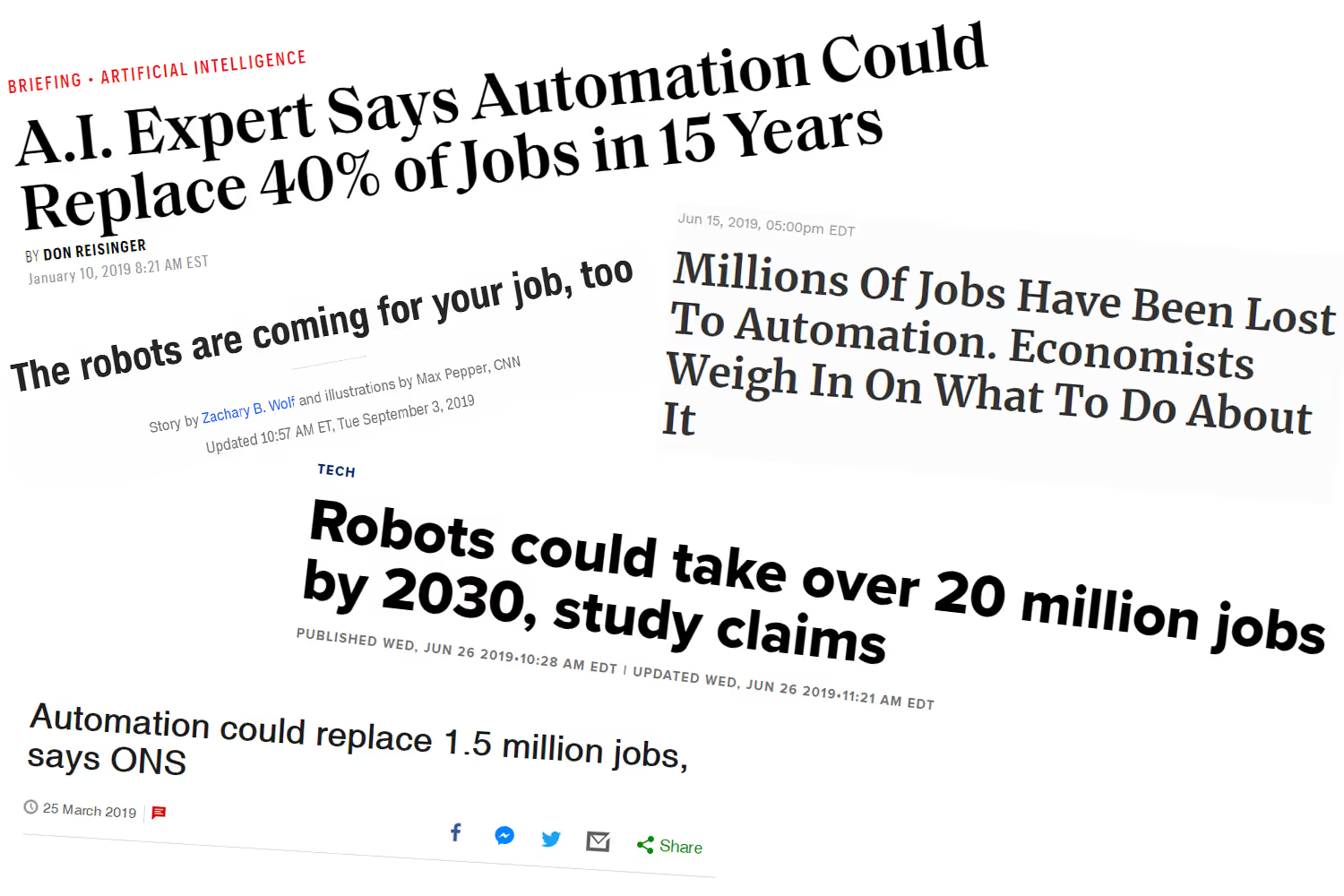
Here’s the reality. Journalists create these headlines to instill fear in their readers so that they’ll have a better chance to click on the article. There won’t be a wave of unemployment.
It’s predicted that 85% of the careers in 2030 don’t exist yet according to The Institute for the Future (IFTF).
Even after that point, though, you’re still nervous if your current career is waning because of technological advancements.
One of the careers that I’m referring to, of course, is medical coding. Thus, many coders find themselves wondering, “Am I working in a dying career?”
The short answer to that question is no. But I’ll answer that question the long way for the rest of this blog post.
Don't Panic: What's Changing
There’s no way to ignore the upcoming changes to medical coding brought forth by technology and AI.
Here’s the reality.
A lot of tasks associated with medical coding are similar to recognizing people within photos. What I mean by that is it’s a set of unstructured data that requires labeling. Fancy AI people call this pattern recognition supervised learning and it’s achievable through current technology.
AI expert, Andrew Ng, gave his perspective in his Harvard Business Review article, “If a typical person can do a mental task with less than one second of thought, we can probably automate it using AI either now or in the near future.”
If you’re familiar with many of the tasks medical coders do today, you’ll understand the significance of Mr. Ng’s statement. A lot of what’s done in this career on a daily basis fits with his “1-second rule”.
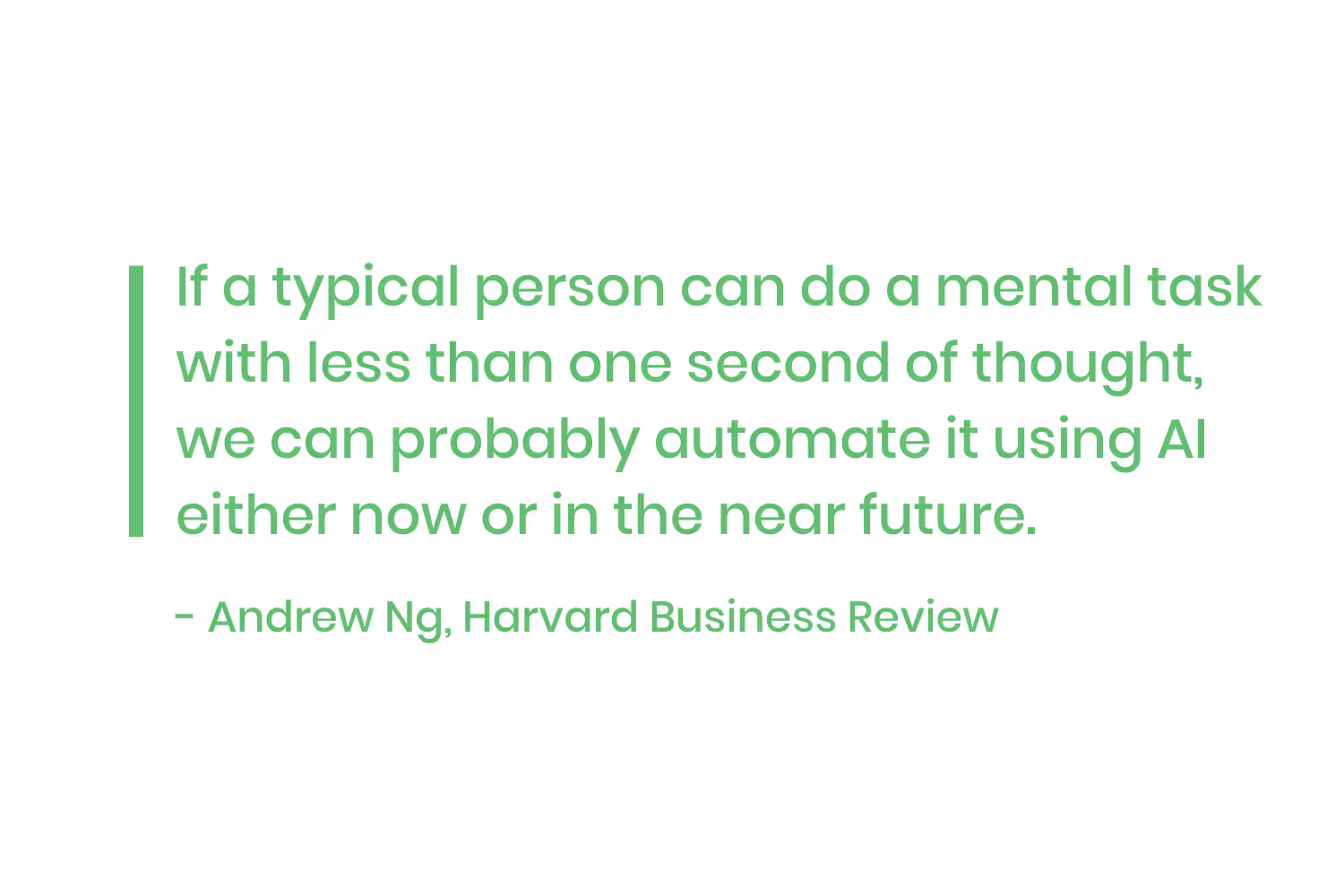
What does this mean?
First, it means that there’s a lot of money on the table for the technology company that comes up with an AI solution that helps coders perform their job faster and better. As time passes and the solution becomes more advanced, it’ll take on more tasks. Eventually, over the course of a few decades or so, automation will take over the majority of medical coding tasks.
So, if you come across someone who’s deciding whether or not they should pursue medical coding, what do you say? After all, just a few paragraphs earlier I told you that it’s not a dying career.
I haven’t changed my mind. It’s not a dying career.
Yes, over the course of time certain jobs have disappeared due to advancements in technology. Some of the most notorious ones are…
- Milkmen
- Lumberjacks
- Movie projectionists
- Typesetters
- Switchboard operators
- VCR repairman
But there’s a pattern with all of these. The majority of them are low-skill, technology-dependent careers (not to offend any former lamplighters).
Medical coding is different.
It requires a mixture of human analytical skills with or without technology.
Current and future coders should embrace the technological advancements headed their way. The experts within the field shouldn’t have to spend hours each day working simple charts. Similarly, those just starting out should get feedback on the simple mistakes they make in real-time to learn from them.
Shifts in Responsibility
Current medical coders are experiencing shifts in their responsibilities.
They’re becoming more exclusive.
They were already specialized between facility and clinical, but their focus is becoming even more granular.
Ambulatory Surgery Centers (ASC) are actively pursuing individuals who specialize in orthopedics, gastroenterology, OB/GYN and neurology coding. The demand for specialist coders is so high right now that it’s the main reason why there’s market growth for this career.
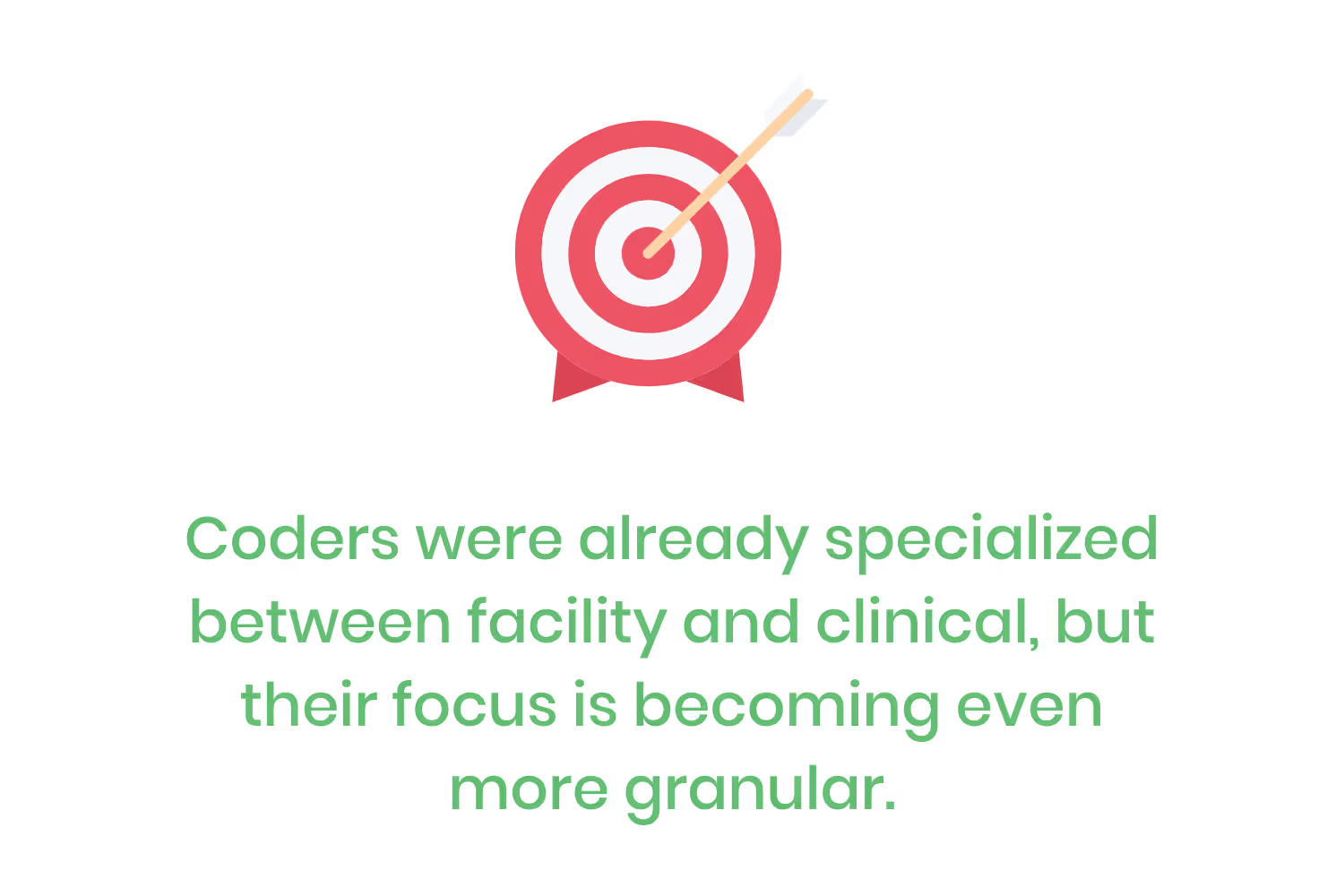
Furthermore, the skills that medical coders develop over the course of their career are translatable into other healthcare information technology (IT) areas.
Here’s an example, coders work with protected health information (PHI) in order to accurately communicate with insurance companies. Working with PHI means they need to fully understand and be compliant with the Health Insurance Portability and Accountability Act (HIPAA).
This means that coders have advanced, first-hand knowledge of how one of the most encompassing laws work. Thus, they could easily pivot toward a position in compliance management or auditing within a healthcare organization.
Another example of how translatable medical coders skills involves denial management. Insurance claim denials cost hospitals and practices around $262 billion per year. That’s a ton of money left on the table. So how can a coder help in this process?
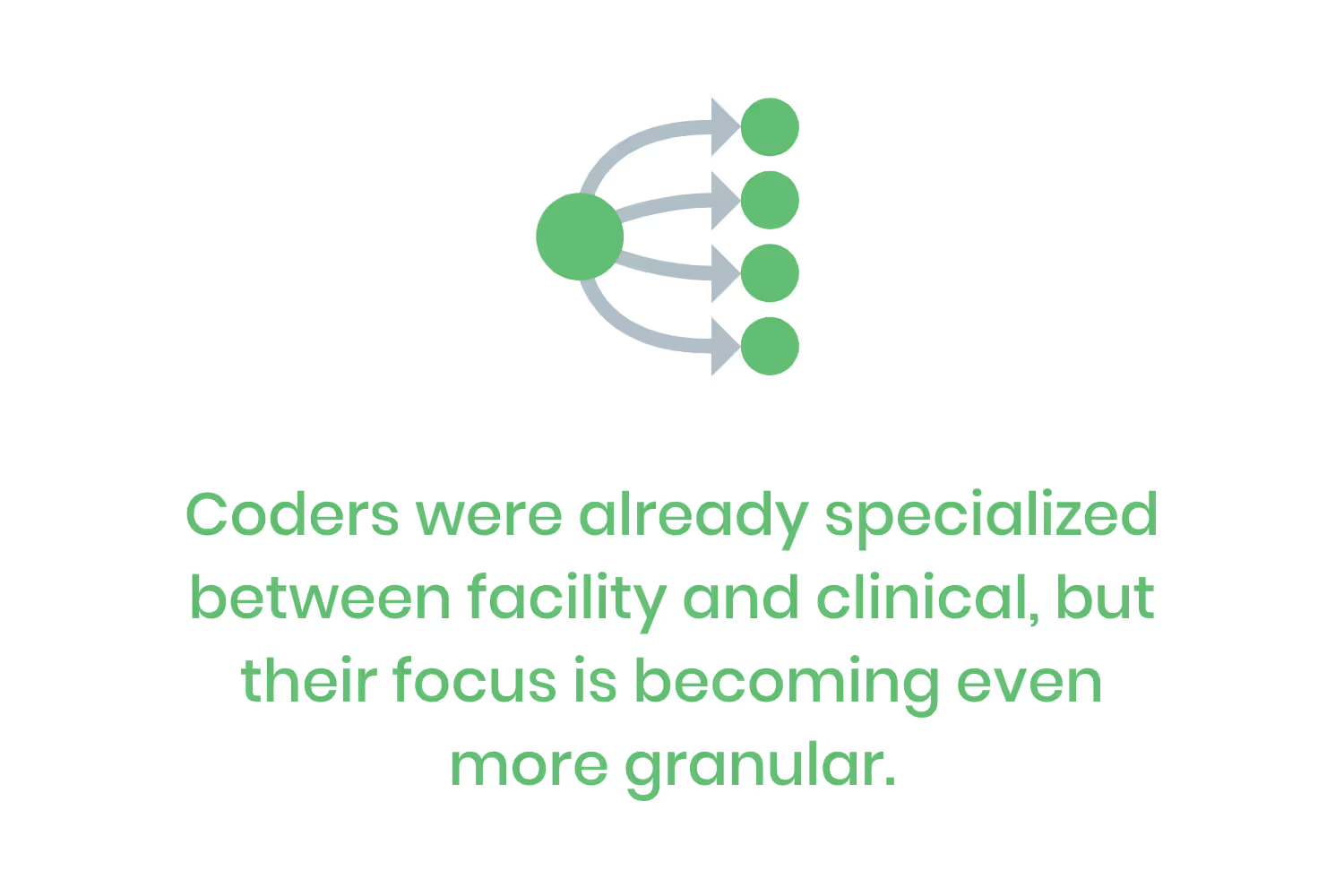
Well, as I just mentioned, coders have access to the complete medical record. These records include details about the entire patient encounter. Denial management is an aspect of the revenue cycle that starts at the time of registration, happens through discharge and completes during collection.
In other words, it lines up perfectly with the information coders have access to.
This means coders, with their unique skill set, are in a unique position to identify areas of improvement to help prevent and reduce denials.
Why Medical Coders are Still Needed
Although essentially everything that can happen to a patient has a definable ICD code, there’s still a lot of grey areas within this field.
A few years ago, a professional coder hosted an “Ask Me Anything” (AMA) session on Reddit. The user said that their secret to success within this field is understanding that no everything is black and white. They went on to say, “The adage is that if you ask 5 different coders to code a procedure or [evaluation and management] then you'll get 5 different answers with detailed explanations from each coder on why they're right.”
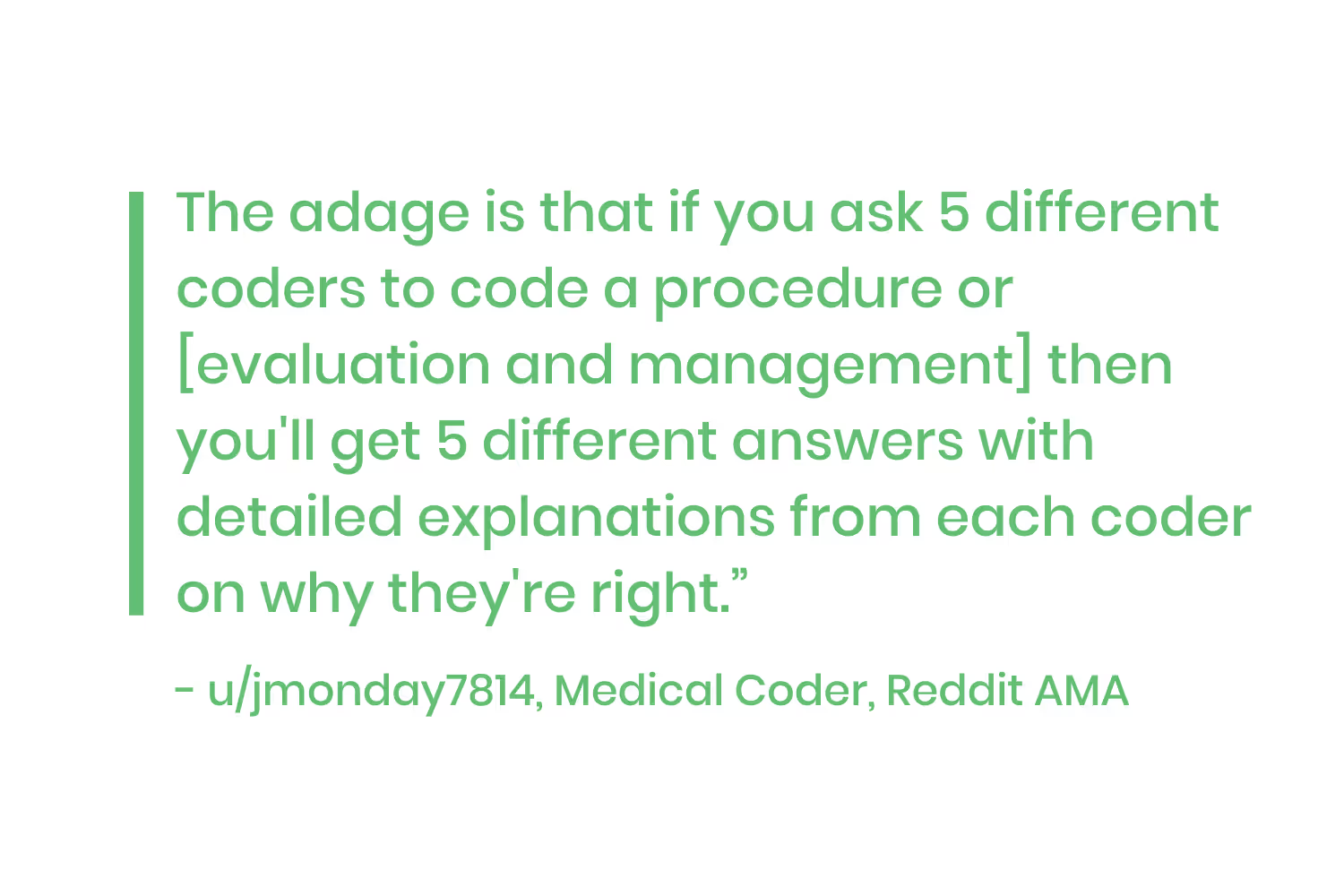
How is technology going to solve that issue if…
- Rules are contradictory
- Descriptions are vague
- Instructions use soft language
It would take an advanced AI system to determine the best answer to a problem if almost everything medical coding related allows for multiple interpretations. Thus, this field is more of an art than a science.
Every interaction between a provider and their patient is unique, regardless if there are similarities that happened with another client.
Furthermore, policies and governmental regulations change often.
In 2019, the American Medical Association (AMA) and UnitedHealthcare (UH) developed 23 new social determinant medical codes. These codes allow for specific identification of social needs and risk factors for patients. They’re an add-on to the preexisting z-codes introduced in 2015 but provide better incentives because they tie into reimbursement.
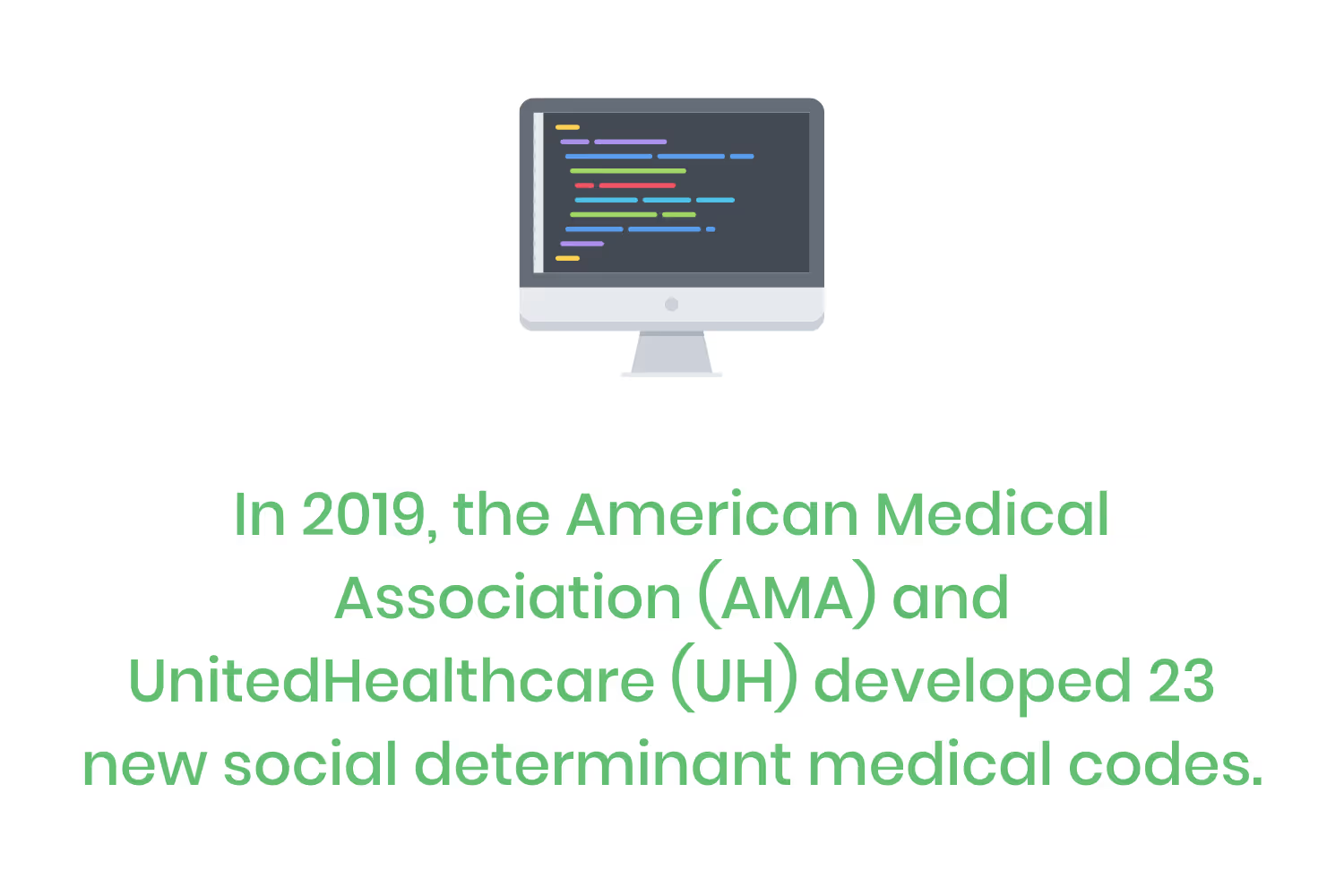
Z-codes weren’t widely used by coders up until this point.
Instead, case managers, discharge planners, social workers and nurses used social determinants most often. But, the new codes work with payment calculations and risk-adjustments for providers. This incentivizes healthcare organizations to use them.
That’s a semi-complicated answer to further prove that policies and regulations change so often and so specifically that it’s nearly impossible for anything but a medical coder to figure out how to navigate them.
Ever-Changing ICD 11 and CPT Codes
ICD 11 is Coming
As time passes, we have a better understanding of human health and human psychology.
This also means that ICD codes need updates regularly, with new chapters, new terms, and more in-depth codes.
Starting January 1, 2022 healthcare organizations will need to use ICD-11. The new version contains 6 new chapters and 55,000 unique disease classification codes.
Some examples of these changes relate to immune system diseases, traditional medicine, and developmental anomalies. These codes also have a better representation of cancers, addictions, medications, substances, and causes of injuries.
The fact that the new version includes so many additional classification codes is daunting for most organizations. Yet, it’s good news for medical coders. Each healthcare facility will need a team of devoted experts to sift through and properly classify the thousands of treatments and procedures.
Off The Cuff CPT Codes
Medical coders are also responsible for applying Current Procedural Terminology (CPT) codes.
On January 1, 2020, the American Medical Association introduced and enforced 394 CPT code changes. Specifically…
- 248 new codes
- 71 deletions
- 75 revisions
Not to mention the six spur-of-the-moment CPT updates that occurred in response to the COVID-19 vaccination plan coordinated with the US government.
The pandemic also influenced the increased use of telehealth therapy and treatment. Therefore, some of the new CPT codes also catered toward remote patient monitoring and digital consultation.
The only way the industry can continue to function as new CPT code updates occur on the fly is by having a pool of experienced medical coders to support the effort.
Outsourcing is Increasing
More diagnosis and procedural codes make healthcare processes more complex, making it harder for facilities to focus on their patients (no wonder doctors are so burnt out). Yet, no practice is immune to the mandated changes that happen on a yearly basis.
As a result, outsourcing medical billing processes to a third-party organization is a massive trend.
In fact, that subsect of medical billing will reach $23.1 billion by 2027 according to Global View Research, Inc.
According to their research, medical coding outsourcing will eclipse in-house teams by 2021. From there it continues to skyrocket in popularity.
Although it costs healthcare facilities money to outsource, it saves them time. That way, they won’t have to focus on their backend processes and can place all of their efforts on caring for their patients.
Conclusion
A lot of jobs you see today won’t exist anymore within the next few years.
Either they’re only around because they’re dependent on an outdated business model or their responsibilities are simple enough that they’ll get replaced by technology that doesn’t exist yet.
Medical coding isn’t a career that falls under that category, though.
That doesn’t mean it’s impervious to change. Technology is already affecting this field and making tedious tasks easier than ever. But, as I mentioned before, there are certain aspects of the job that’s a few decades away from having a computer program figuring it out with no human intervention.
If you know someone who’s considering getting into medical coding or that person is yourself, make sure to reiterate that it’s not dying.
Emphasize your product's unique features or benefits to differentiate it from competitors
In nec dictum adipiscing pharetra enim etiam scelerisque dolor purus ipsum egestas cursus vulputate arcu egestas ut eu sed mollis consectetur mattis pharetra curabitur et maecenas in mattis fames consectetur ipsum quis risus mauris aliquam ornare nisl purus at ipsum nulla accumsan consectetur vestibulum suspendisse aliquam condimentum scelerisque lacinia pellentesque vestibulum condimentum turpis ligula pharetra dictum sapien facilisis sapien at sagittis et cursus congue.
- Pharetra curabitur et maecenas in mattis fames consectetur ipsum quis risus.
- Justo urna nisi auctor consequat consectetur dolor lectus blandit.
- Eget egestas volutpat lacinia vestibulum vitae mattis hendrerit.
- Ornare elit odio tellus orci bibendum dictum id sem congue enim amet diam.
Incorporate statistics or specific numbers to highlight the effectiveness or popularity of your offering
Convallis pellentesque ullamcorper sapien sed tristique fermentum proin amet quam tincidunt feugiat vitae neque quisque odio ut pellentesque ac mauris eget lectus. Pretium arcu turpis lacus sapien sit at eu sapien duis magna nunc nibh nam non ut nibh ultrices ultrices elementum egestas enim nisl sed cursus pellentesque sit dignissim enim euismod sit et convallis sed pelis viverra quam at nisl sit pharetra enim nisl nec vestibulum posuere in volutpat sed blandit neque risus.

Use time-sensitive language to encourage immediate action, such as "Limited Time Offer
Feugiat vitae neque quisque odio ut pellentesque ac mauris eget lectus. Pretium arcu turpis lacus sapien sit at eu sapien duis magna nunc nibh nam non ut nibh ultrices ultrices elementum egestas enim nisl sed cursus pellentesque sit dignissim enim euismod sit et convallis sed pelis viverra quam at nisl sit pharetra enim nisl nec vestibulum posuere in volutpat sed blandit neque risus.
- Pharetra curabitur et maecenas in mattis fames consectetur ipsum quis risus.
- Justo urna nisi auctor consequat consectetur dolor lectus blandit.
- Eget egestas volutpat lacinia vestibulum vitae mattis hendrerit.
- Ornare elit odio tellus orci bibendum dictum id sem congue enim amet diam.
Address customer pain points directly by showing how your product solves their problems
Feugiat vitae neque quisque odio ut pellentesque ac mauris eget lectus. Pretium arcu turpis lacus sapien sit at eu sapien duis magna nunc nibh nam non ut nibh ultrices ultrices elementum egestas enim nisl sed cursus pellentesque sit dignissim enim euismod sit et convallis sed pelis viverra quam at nisl sit pharetra enim nisl nec vestibulum posuere in volutpat sed blandit neque risus.
Vel etiam vel amet aenean eget in habitasse nunc duis tellus sem turpis risus aliquam ac volutpat tellus eu faucibus ullamcorper.
Tailor titles to your ideal customer segment using phrases like "Designed for Busy Professionals
Sed pretium id nibh id sit felis vitae volutpat volutpat adipiscing at sodales neque lectus mi phasellus commodo at elit suspendisse ornare faucibus lectus purus viverra in nec aliquet commodo et sed sed nisi tempor mi pellentesque arcu viverra pretium duis enim vulputate dignissim etiam ultrices vitae neque urna proin nibh diam turpis augue lacus.




